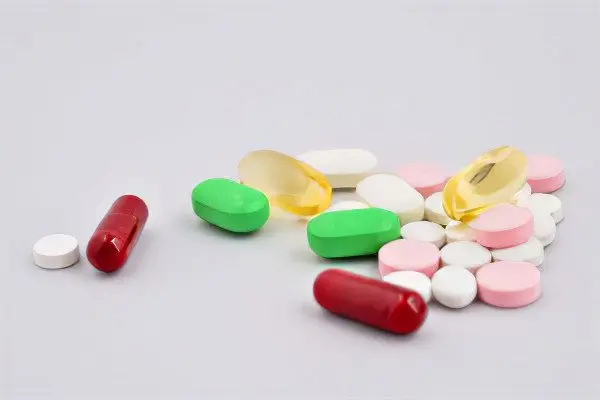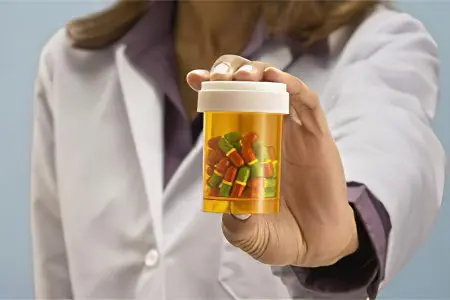Contents
- What antibiotics are prescribed for intestinal infections?
- Treatment with intestinal antiseptics
- What antibiotics are prescribed for children with intestinal infection?
- Advantages and disadvantages of antibiotic therapy for intestinal infections
- How to take antibiotics for an intestinal infection?
- special instructions

Intestinal infections are accompanied by nausea, vomiting, diarrhea. These symptoms are characteristic of almost all inflammatory infectious lesions of the intestine.
Intestinal infections can be caused by viruses, bacteria and parasites, but viruses and bacteria remain the leaders among this group of pathogens. Treatment of intestinal infections is aimed at completely destroying the harmful flora and restoring the normal functioning of the organ.
Drugs are selected depending on the type of pathogen. If the disease is caused by bacteria, then antibiotics are required. It’s just that antibiotics are not prescribed for intestinal infections. First you need to determine the type of microbe that provoked the disease. Then a test is carried out for the sensitivity of the bacterium to a particular drug. This allows you to prescribe etiotropic treatment. The doctor must prescribe drugs.
What antibiotics are prescribed for intestinal infections?

For the treatment of intestinal infections, there are several antibacterial drugs that have a wide spectrum of action:
Cephalosporin. Drugs from this group may bear the following names: Cefotaxime, Cefabol, Klaforan, Rocesim. Their structure has some similarities with the drugs of the penicillin series. The most common side effect of cephalosporins is allergic reactions.
Tetracycline. Drugs in this group: Vibramycin, Doxycycline, Tetradox. They are quickly absorbed in the intestines, have a pronounced antibacterial effect, but can give various complications, sometimes even cause deafness. Preparations from the tetracycline group are not used to treat children.
Penicillin. The drugs of this group can be found under such names as: Amoxicillin, Ampicillin, Monomycin, etc. The spectrum of activity of these drugs is wide, they are detrimental to most bacteria. Preparations from the penicillin group are prescribed to children and pregnant women, if there is a real need for this. The most common side effects of drugs in this group are allergic reactions.
Aminoglycosides: Neomycin and Gentamicin. They are prescribed for the treatment of serious diseases caused by bacterial flora. Preparations of this group are prescribed only for health reasons, as they have a toxic effect on the kidneys, liver and other organs.
Fluoroquinolone . Preparations of this group: Levofloxacin, Ciprolet, Ofloxacin, Normax, Norfloxacin, Ciprofloxacin, etc. These drugs affect the enzyme that is responsible for the synthesis of bacterial DNA, thereby destroying the pathogenic flora. Fluoroquinolones are not prescribed to women in position, people under 18 years of age, patients with pathologies of the heart and blood vessels.
Macrolides. Preparations of this group are produced under the names: Azithromycin, Roxithromycin, Erythromycin. Macrolides can be used to treat children, as well as pregnant and lactating women. They are prescribed in the case when it is not possible to use drugs from the penicillin group.
Levomycetin. In the past, this drug was often prescribed to treat intestinal infections, but it is now rarely used. The fact is that it has a destructive effect on the human bone marrow.
Drugs of the penicillin group and aminoglycosides most often treat not intestinal, but colds. In case of intestinal damage, cephalosporins, fluoroquinolones and sulfonamides are mainly prescribed. Medicines from the tetracycline group can also be prescribed, but this is rarely done, only in severe cases of the disease, when there is a threat to the patient’s life.
Antibiotics for intestinal infections are used only in the form of injections. The duration of therapy is at least a week.
Treatment with intestinal antiseptics

In intestinal infections, antiseptic drugs are often prescribed. They selectively act on the pathogenic flora, but their own intestinal bacteria remain intact.
Intestinal antiseptics are detrimental to most bacteria (staphylococcus, proteus, shigella, etc.). They can be given to children and adults.
These drugs include:
Ercefuril (nifuroxazide). This drug can be prescribed to treat children older than 6 years. Its action is aimed at suppressing the vital activity of the bacterial flora that inhabits the intestines. Assign Ersefuril with rotavirus infection, with dysentery.
Furazolidone. This is a time-tested antibacterial drug that is detrimental to many harmful microorganisms (Salmonella, Shigella, etc.). In addition to the antibacterial effect, Furazolidone can increase the patient’s immunity.
Intetrix is a drug that allows you to destroy not only harmful bacteria, but also fungi and parasites. It can be used not only for treatment, but also for the prevention of intestinal infections, for example, during hiking.
Ftalazol is an antiseptic with a wide spectrum of action. It should be used with caution in children as it has side effects.
Enterol is a preparation containing live yeast that destroys harmful bacteria. Enterol contains a protease. Thanks to this enzyme, the toxins released by bacteria will be destroyed and will not harm the human body. Enterol also contains probiotics that stimulate the growth of the natural human intestinal microflora. A single dose of the drug is enough to feel the therapeutic effect. However, Enterol should not be combined with antibiotics or adsorbents. It has no contraindications, so it is prescribed for the treatment of lactating and pregnant women, as well as children.
What antibiotics are prescribed for children with intestinal infection?

To save the child from an intestinal infection caused by a bacterial flora, antibiotics are required. In this case, the drug should be as effective and safe as possible.
Drugs that can be prescribed for the treatment of children:
Penicillins: Amoxiclav, Amosin, Augmentin, Flemoxin Solutab. These drugs are the safest for treating children, although the risk of allergic reactions cannot be ruled out. For therapy, it is best to use penicillins protected by clavulanic acid, since many bacteria have developed resistance to penicillins in their pure form.
Low toxicity and sufficient effect in the treatment of intestinal infections have drugs such as: Suprax, Cefalexin, Zinnat. However, they cannot be used to treat children in the neonatal period.
Clarithromycin, Vilprafen and Sumamed are antibacterial drugs that have been used for many years to treat intestinal infections. They rarely give allergic reactions, but are able to destroy many bacteria.
Enterofuril more often than other drugs is used to treat intestinal infections. Its active substance does not have a systemic effect on the body, “working” only in the intestines. This drug can be used to treat children over a month old and to treat pregnant women.
If the disease has a mild course, then there is no need to give the child an antibiotic, it is enough to use intestinal antiseptics. In a state of moderate severity, drugs such as Ampicillin or Amoxiclav can be used. Provided that the child is allergic to them, or there are any other contraindications to their use, it is possible to prescribe drugs from the macrolide group, for example, Azithromycin.
Advantages and disadvantages of antibiotic therapy for intestinal infections

The advantages of antibiotics in the treatment of diarrhea include:
Drugs act on the cause of the disease.
The therapeutic effect is achieved in the shortest possible time, but only on condition that the drug is chosen correctly.
Bacteria cease to have a toxic effect on the human body.
The bacteria will be completely destroyed.
The disadvantages of treating intestinal infections with antibiotics include:
They have a systemic effect on the body.
Each drug has a number of contraindications.
Many antibiotics cannot be used to treat children, pregnant women and nursing mothers.
Antibiotics can cause side effects.
How to take antibiotics for an intestinal infection?
If an antibiotic was prescribed, then it must be drunk in a full course, which lasts at least 5 days for a child and at least 7 days for an adult. Otherwise, there is a high risk that bacteria will develop resistance and it will be difficult to get rid of them.
You need to take drugs at regular intervals. To minimize side effects. Take probiotics along with antibiotics.
special instructions
The most effective and safe drug for the treatment of intestinal infections is Norfloxacin (Normax) and Levofloxacin. They can also be used to treat traveler’s diarrhea, cystitis, urethritis, pyelonephritis, salmonellosis, shigellosis, etc. However, Norfloxacin is not prescribed for children, lactating and pregnant women. With caution, it should be taken by epileptics, people with atherosclerotic disease and stomach ulcers.
Many women use Enterofuril to treat their children. It is also prescribed by most pediatricians for suspected intestinal infection. This drug meets all safety requirements and quickly brings relief to the child, relieving the severity of symptoms such as vomiting and diarrhea.









